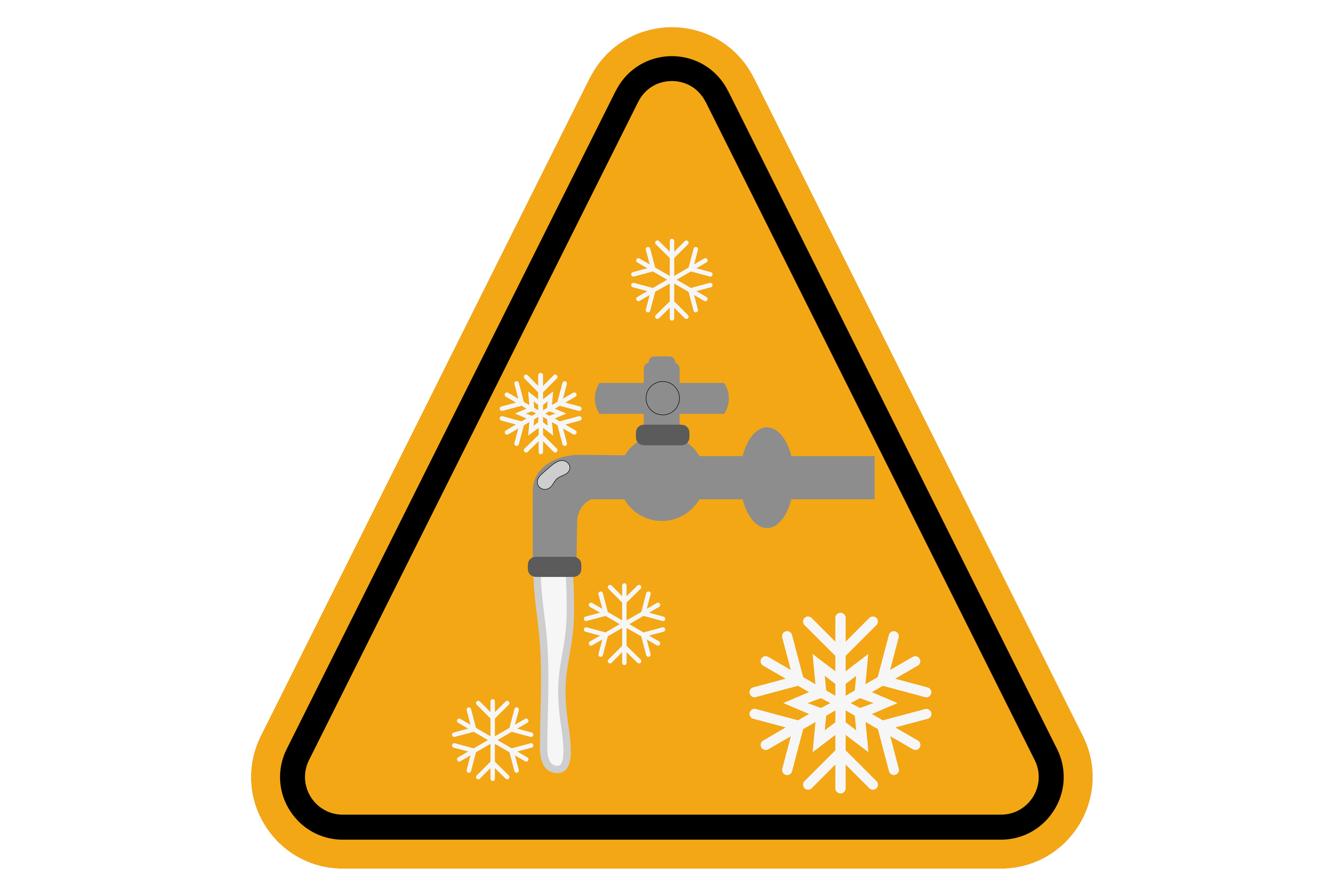Count the cost of ignoring Jack Frost
Churches and nonprofits should be wise and winterize their facilities.
By Fritz Hahn and Karlyn Stern
Throughout history, the chill of winter has been personified by Jack Frost, Old Man Winter and even malevolent ice giants. The frigid nemesis you faced depended on your culture and tradition.
While the kinder, gentler Jack Frost merely nips at your nose, the ice monsters are looking for someone to clobber. They’re more like the Yeti – AKA the Abominable Snowman – than the mischievous ice imps known in folklore.
“When it comes to winterizing your facility, it’s better to prepare for the Yeti than the imp. ”
Why? You lose nothing if you prepare, but could lose everything if you don’t.
Even sunny Southern California can experience temperatures in the 20F range. And that’s on the high end compared to Boise, Idaho, where the chill can plummet to -15F.
But forewarned is forearmed. You’ve still got time to lock out Jack Frost, Yetis and the whole gang of winter troublemakers.
Pipes gonna’ splode?
The biggest threat to your facility may be frozen pipes. It’s easy for this hazard to go unnoticed because there’s no smoke, no alarms and no warning. A pipe may burst in the middle of the night, turning your stairwell into a waterfall. Even the tiniest fissure can wreak havoc, spraying hundreds of gallons in a matter of hours.
According to the National Association of REALTORS, if pipes are exposed to temperatures below 20°F for several hours, they’re ripe to explode. That’s all it takes.
Not all pipes are equally at risk. Plumbing in unheated (or minimally heated) areas such as basements, crawl spaces and attics is especially vulnerable. So are uninsulated pipes that run along exterior walls.
And while the leak may have started quietly, it will go out with a bang.
“When pipes freeze and burst, the impact can be far-reaching and significantly damage your home or business,” according to Murdock Law, a Wisconsin firm. “Water from the broken pipes can saturate walls, ceilings, and floors, weakening their integrity. This may lead to the need for extensive repairs and renovations. Your [building] may become uninhabitable as a result of the damage.”
The fallout includes:
Water damage
Electrical damage
Structural damage
Mold
In addition, you may have to abandon part or all of your facility while restoration is underway. That would displace you in the midst of winter.
Adding insult to injury, it’s likely that filing an insurance claim will result in your rates increasing. That’s in addition to any deductibles you must pay.
If we do the math, the cost and effort to prevent frozen pipes is significantly less than the price of picking up the pieces. It’s also a lot less messy.
Top tips to prevent frozen pipes
Identify pipes at risk and insulate them.
If you can’t do that, use heat tape (also called heat cables) to warm exposed pipes.
Keep the building temperature at 55F or higher at all times.
Turn off and cover exterior faucets.
Disconnect hoses.
During cold weather, let internal faucets drip, which keeps water from stagnating and freezing.
Install an alarm that monitors temperatures and detects running water (this is offered free to clients of Philadelphia Insurance Companies but there are also other products available).
Have a trusted plumber or contractor inspect your plumbing to identify leaks or risks.
Other hazards
While exploding pipes are destructive, they’re not the only threat to your facility. Your building can benefit from these winterizing “hot tips”:
Get a professional roof inspection to find and fix leaks and unclog downspouts and gutters.
Seal cracks, gaps and leaks around windows and doors to save energy.
Keep floors mopped and dry to prevent slips, falls, injuries (and lawsuits). Slip-prevention mats also help.
Use ice-melting agents to keep pavement from freezing (but don’t overuse them or you risk damaging parking surfaces).
We realize these are not small tasks. But they are attainable. And if you must prioritize, you know where to start.
If your congregation or organization has volunteers with maintenance savvy, invite them to join your winterization team. The best approach is one led by a professional and supplemented by volunteers.
With your team in place and a plan in hand, you can send the Yeti back out into the cold where he belongs.
Schedule a free insurance consultation with Ministry Pacific
Whether you’re seeking property insurance, liability insurance or specialized coverage, Ministry Pacific can help. We’re exclusively devoted to serving churches and charitable nonprofit organizations. Fill out the form below to get started, or you can call us now at 1.866.870.2700.





